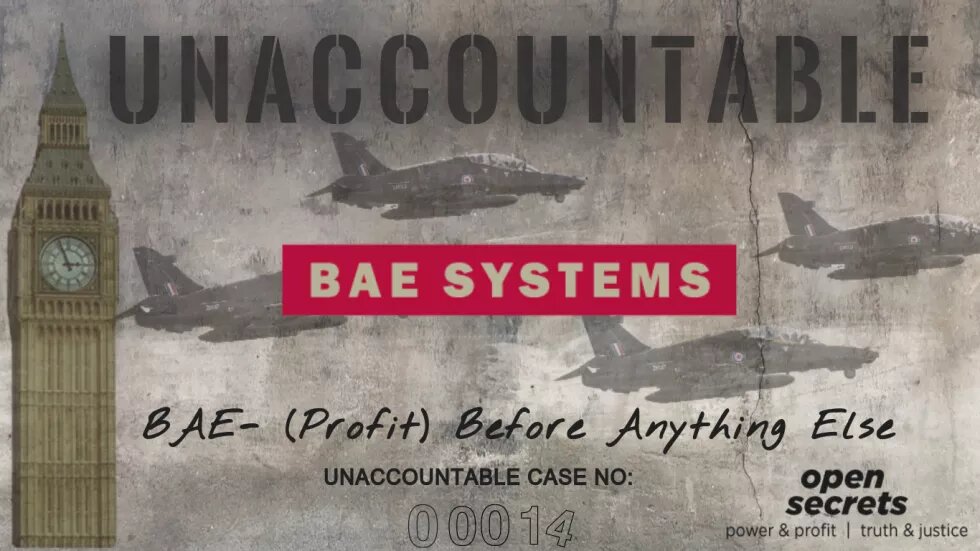This is an instalment in Open Secrets’ series detailing BAE Systems’ network of middlemen and agents who were paid generously in return for their political connections and influence during South Africa’s 1999 Arms Deal. This week, we turn our focus from the individual middlemen who profited, to the UK mega arms corporation pulling the strings at the centre of the network of covert partners, offshore companies and secretive, but highly lucrative, money transfers. BAE used its network first, to ensure it won the most lucrative part of the Arms Deal, and then later to avoid accountability for the alleged bribe payments upon which its selection relied. With its modus operandi laid bare, and the evidence overwhelming, there is no reason for BAE to remain unaccountable.

BAE’s Business background
BAE Systems, previously known as British Aerospace, is a British behemoth in the notoriously corrupt global arms trade. The UK-based company has and continues to supply arms to war-torn regions across the globe, seemingly with little regard for the lived realities of the civilians who suffer as BAE’s jets drop bombs on them.
The most recent example of BAE’s willingness to put profit before their human rights obligations is their continued supply of weapons to Saudi Arabia despite the Saudis’ ongoing human rights abuses in Yemen. This was affirmed by a June 2019 UK court ruling, which declared UK arms sales to Saudi Arabia unlawful. Not even this has stopped BAE from continuing its supply. The company has continued to make its regular flights from England to Saudi Arabia with the cargo and the expertise needed to continue the indiscriminate bombing of Yemeni civilians.
BAE has a long and lucrative history with Saudi Arabia, assisted along the way by the British political establishment. In 1985, BAE entered into a deal to supply Saudi Arabia with fighter jets and other aircraft. The deal, known as the Al-Yamamah deal, was sanctioned by Margaret Thatcher and would come to be known as the most corrupt transaction in commercial history. At the time, the deal was worth about £43-billion. It later emerged, during an investigation by the UK Serious Fraud Office (SFO), that BAE had paid more than £6-billion in bribes to UK and Saudi politicians, and middlemen in order to secure the deal.
However, as the SFO investigation started gaining traction, the UK government, pressured by threats of “repercussions” from the Saudis, made the call to halt the SFO’s investigation, claiming that prosecution would be unlikely. It later emerged that this decision was made after direct intervention by then Prime Minister Tony Blair, who insisted that the investigation into BAE’s conduct in relation to the Saudi Kingdom be stopped.
Despite two decades of denying any wrongdoing in their global operations, including in Saudi Arabia, BAE did acknowledge a “serious accounting offence” regarding their activities in Tanzania. It settled that case with the SFO for a mere £30-million, a fraction of what it made from the deal. In a separate settlement with the US government, BAE paid $400-million for violations of laws that bar the use of bribe payments to secure deals in Saudi Arabia, the Czech Republic, Hungary and other countries.
This was a mere slap on the wrist. Arguably, this failure to pursue real accountability cemented a culture of impunity and allowed BAE to continue to operate its network around the globe and eventually expand its business to South Africa.
*********


